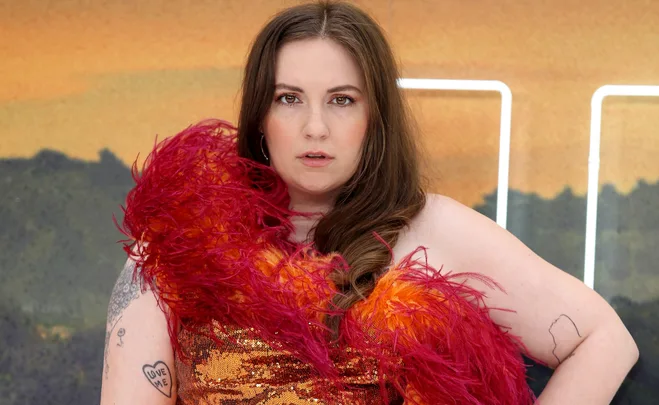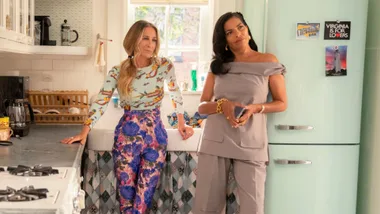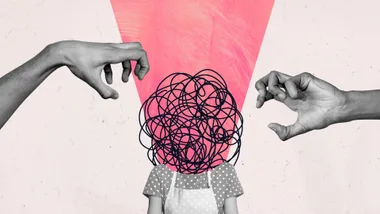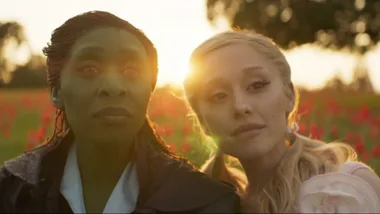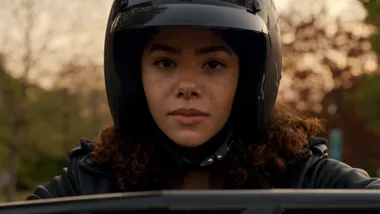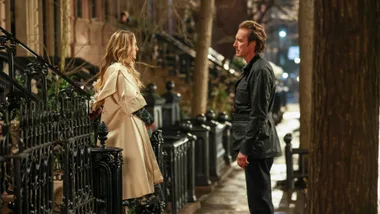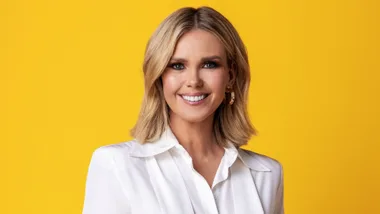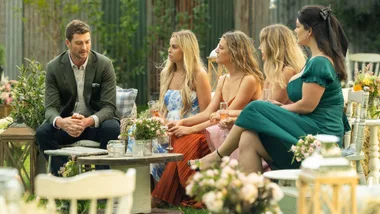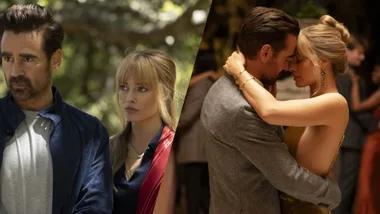Lena Dunham takes precisely zero shit, and nor do any of the female leads she writes. There’s a reason for that.
The 36-year-old is best known for her wildly popular television creation, Girls. Based on four inherently flawed (albeit alarmingly relatable) female friends, Dunham said the show represented the unseen women of Sex and the City—as in, female writers, nannies and art gallery assistants in New York City who don’t have their own apartment, a designer-filled wardrobe and the five-figure paycheque that could constitute the Carrie Bradshaw lifestyle.
Instead, the lead character Hannah Horvath is a passionate, but struggling writer who just can’t seem to get a break—both in her career and personal life. But it’s not always exterior, uncontrollable elements that become hurdles. Hannah’s flawed and oftentimes selfish personality tend to hold her back, but her filterless one-liners, frequent existential spirals and her unapologetic, take-me-as-I-am nature is also realistic, however uncomfortable that is to watch. She reflects the female rarely seen onscreen—one that doesn’t fit into a conventional feminine ‘ideal’.
Five years on from the final Girls episode, Lena has brought a new, unconventional, patriarchy-defying female lead to the screen, but this time, she’s a tween in the 1200s.
Amazon Prime’s Catherine Called Birdy was directed by Dunham and is adapted from one of her favourite childhood novels of the same by Karen Cushman.
“I just always like writing characters who push back at the idea about what a woman can or “should” be,” Dunham tells marie claire Australia ahead of the film’s release. “Like the idea of likeability and behaving a certain way.
“Birdy very much fits into the kind of history of the women that I write, and the kind of people that interest me, and so in that way, there’s a connection [to Girls].”
It’s easy to see how. Birdy (played by Game Of Thrones‘ Bella Ramsey) is creative, vibrant, and isn’t afraid to speak her mind. She’s also terrified of the conventions that 13th-century England not only expects, but forces upon pre-teen girls.
“Artists are always exploring the same questions over and over again, and for me, a lot of those questions are what it looks like to try to fit into some model of femininity and then recognizing that it’s not necessarily for you,” Dunham adds.
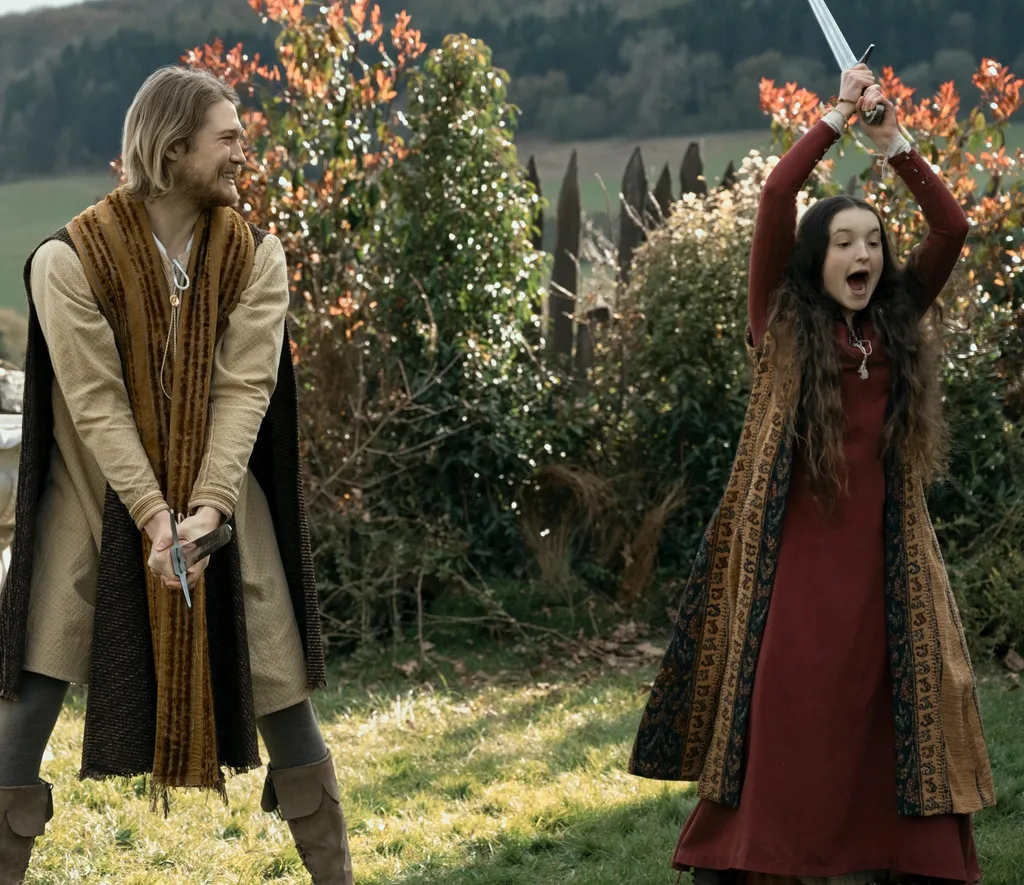
Despite being set in 1290—theoretically a completely different time societally, Catherine Called Birdy has some alarming parallels to real life, particularly when it comes to female reproductive rights, a huge point of contention in the US following the overturning of Roe v Wade.
In Dunham’s film, the 12-year-old lead discovers that the onset of her period marks the moment she should be married off and have children.
“When Birdy says, ‘I don’t want to be a wife and I don’t want to be a mother,’ she’s seeing what her mother has to go through with pregnancies that are not safe or viable—and being forced to continue a pregnancy is something that’s now a reality in the US,” Dunham says.
“That’s a symmetry that we never hoped to have in this piece of historical fiction, but much the same that The Handmaids Tale stopped seeming so ‘out there’ and sci-fi—and Margaret Atwood’s vision of the future started to feel more real—this version of the past [in Birdy] started to feel more real.”
Dunham hopes that the character of Birdy can represent a rebellion against patriarchal limitations not only for young girls, but for everyone.
“With this film, the hope is that Birdy can continue to be what she was for me, which is a role model of rebellion and pushing back against things that you societally believe to be wrong.
“We totally are where we are because we stand on the backs of brave women and embrace people who made those choices and did fight back.”
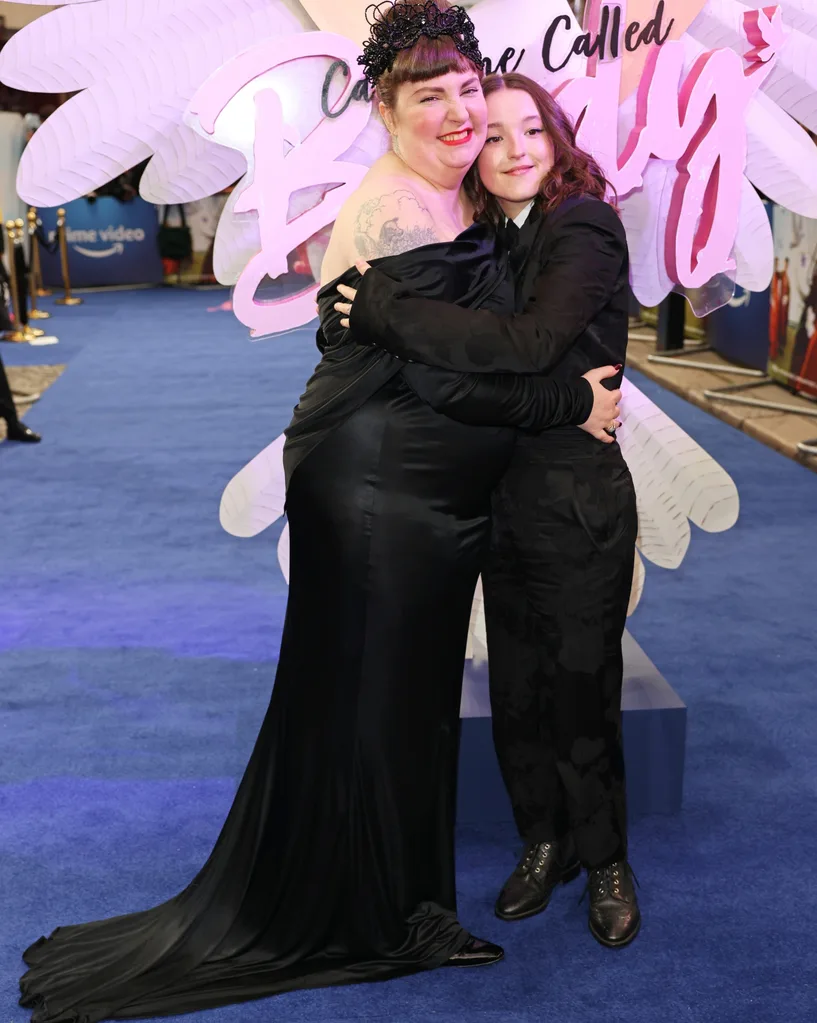
Another key theme in Birdy is the exploration of sexuality and gender identity, something that essentially didn’t exist in 1290 (let alone barely acknowledged in the 20th century). In one scene, Birdy’s close friend Perkin reveals to her that he is queer. The film version of Birdy also doesn’t put herself into a gender category, per se, which was an intentional move from Dunham.
“Birdy is a sprite and spirit, so when she says ‘I’m not a lady and I can’t mimic one,’ she’s not just saying, ‘I don’t like ladies less,’ she’s just not a lady, and she’s saying, ‘Don’t put me in this gender box,’” Dunham explains.
Ramsey, who shot to fame when she scored the role of Lyanna Mormont in Game Of Thrones in 2016, not only perfectly encapsulated Birdy’s vibrant spirit onscreen, but she spent a lot of time learning about her offscreen, too.
“To step into that character and exploring her was cool, and thinking that if she was born in this time period, maybe she would be exploring her sexuality and gender identity and stuff, so that was also cool to talk about and think about,” Ramsey tells us.
You could say Catherine Called Birdy kills many birds with one stone when it comes to topical (and important) conversations that we, as a society should constantly revisit. And somehow, Dunham does it by wrapping it into a feel-good 108-minute spectacle that’s suitable for literally anyone, of any age.
“That’s my greatest hope,” Dunham tells us. “I want it to be something that grandparents, parents and kids would all want to watch together and process it—the dream is that it can start a conversation.”
We have a feeling it will.
Catherine Called Birdy is available to stream on Amazon Prime from October 7. Sign up for a free 30-day trial here.

